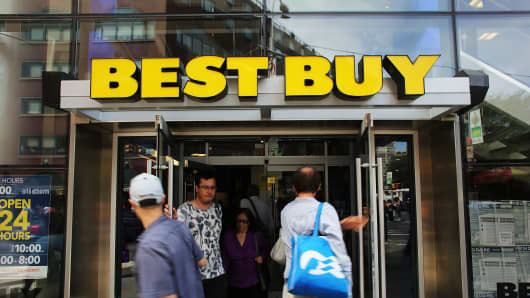But the potential investors remain unconvinced with the idea of investing in a company that has struggled to maintain market share against online retailers like Amazon.com, the sources added.
Schulze has until Thursday to submit a buyout proposal to the Best Buy board, a deadline that was already extended in December to let him include the company's full-year results as part of his due diligence review.
For Best Buy's management, no deal means that the company has to execute its turnaround plan on its own. In September, Best Buy appointed CEO Hubert Joly in an attempt to reinvent the retailer.
Schulze, who founded Best Buy in 1966, was forced out as Best Buy chairman in June after an internal probe found he had not informed the board of allegations that former Chief Executive Brian Dunn was having an inappropriate relationship with a female employee.
Schulze originally informed the board last August that he was interested in teaming up with private equity partners to buy the company. He said in August that he could acquire Best Buy for $24 to $26 per share, valuing the deal between $8.16 billion and $8.84 billion and if debt was included as much as $10.9 billion.
(Read More: Best Buy Founder to Make $5 Billion-$6 Billion Bid: Report)
He has been in talks with private equity firms Leonard Green Partners, Cerberus Capital Management, and TPG Capital about a potential deal since late last summer, although those discussions have not made much progress, the sources said.
Best Buy, TPG, and Cerberus declined to comment. Leonard Green could not be reached for comment.
Some analysts were skeptical from the get-go about Schulze's ability to win over potential investors.
"What exactly is he going to do differently that hadn't occurred to him (previously)?" said Michael Pachter, an analyst with Wedbush Securities." That's why people are not particularly impressed — what is his big strategy that he didn't bother to share with anybody when he was chairman of the board?"


